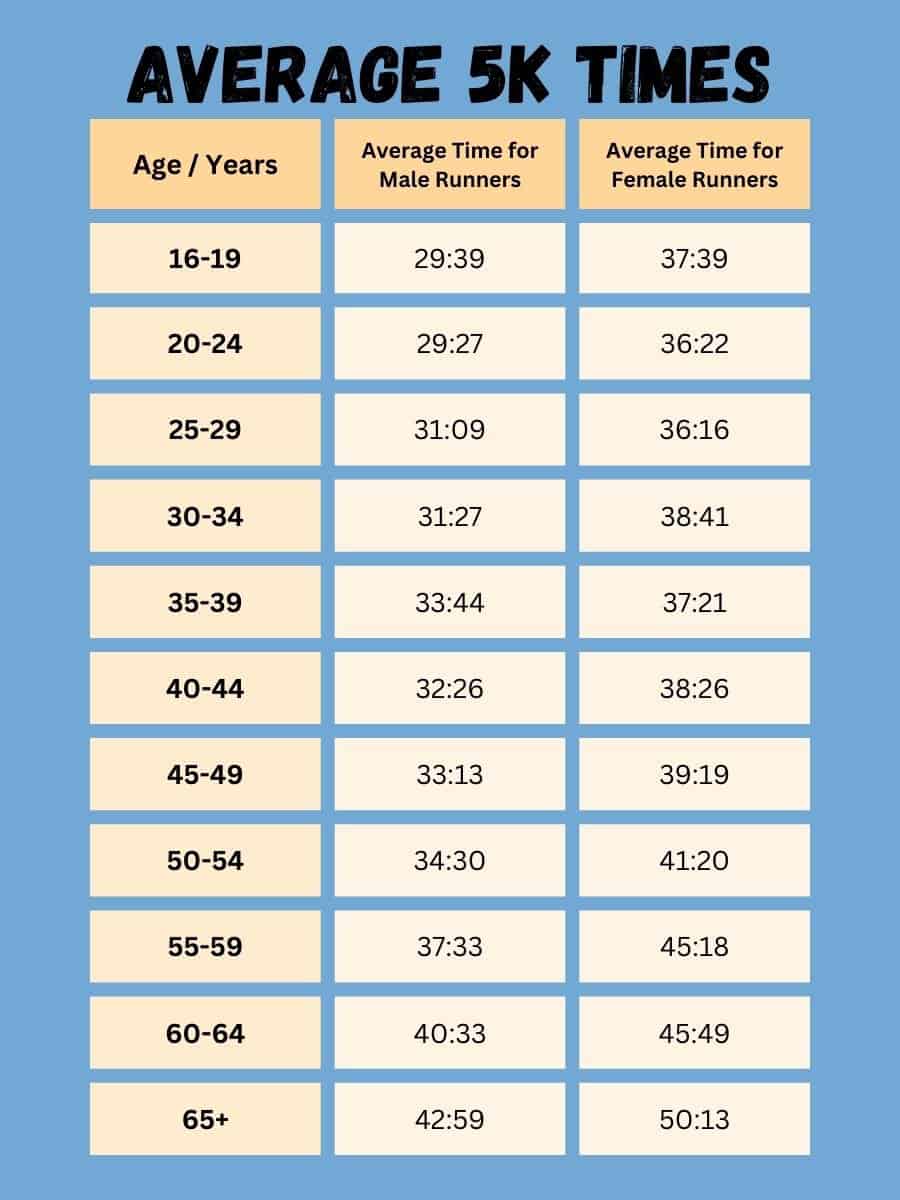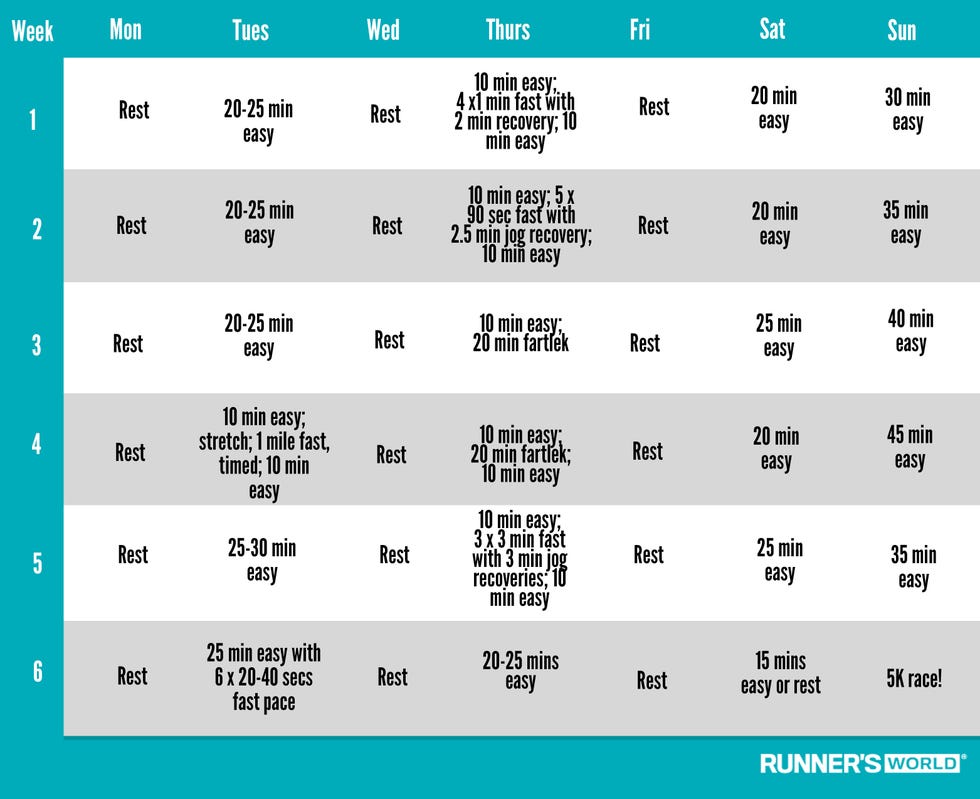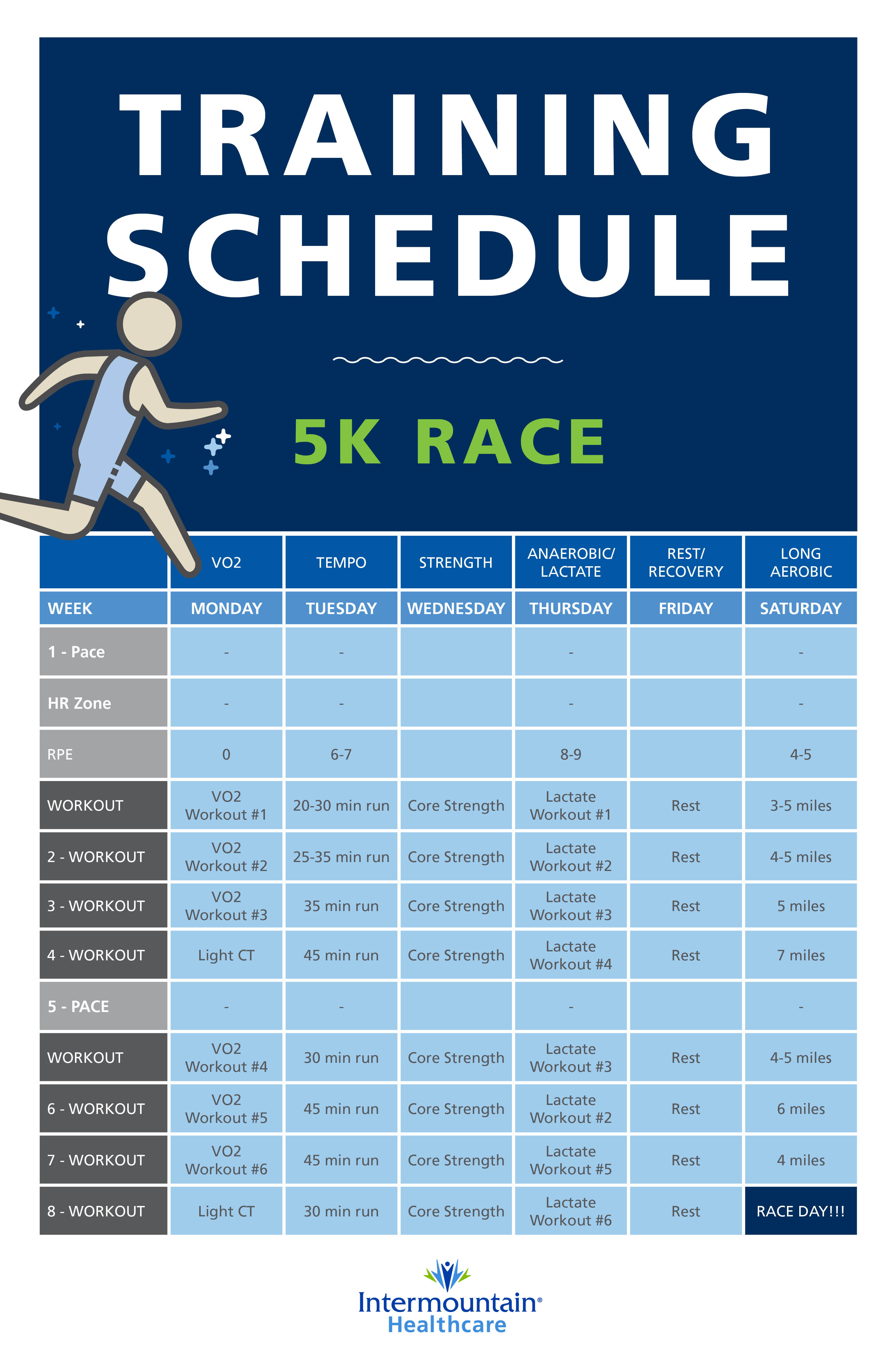Understanding the 5k Run: Basics and Importance
A 5k run, equivalent to 3.1 miles, is a popular running event for both beginners and seasoned runners. Estimating the time required for a 5k run, or understanding how long it should take, is essential for setting realistic goals, tracking progress, and preparing for race day. This information is particularly relevant for those asking, “How long does a 5k run take in minutes?”
Factors Influencing 5k Run Times
Various factors can impact the time needed to complete a 5k run, making it crucial to consider these elements when estimating your 5k run time. Fitness level, running pace, terrain, and weather conditions are among the primary factors to take into account.
Firstly, your overall fitness level significantly influences your 5k run time. A higher fitness level generally translates to faster run times, while a lower fitness level may result in longer completion times. Factors contributing to your fitness level include cardiovascular endurance, muscular strength, and flexibility.
Running pace is another critical factor to consider when estimating your 5k run time. Running pace is the speed at which you cover a specific distance and is often measured in minutes per mile or kilometers per hour. To estimate your 5k run time, determine your current running pace and use it to calculate your expected completion time.
Terrain is a frequently overlooked factor that can impact 5k run times. Running on hilly or uneven terrain will likely take longer than running on a flat, even surface. Adjust your 5k run time estimate based on the terrain you will be encountering during the race.
Lastly, weather conditions can also affect your 5k run time. Running in adverse weather conditions, such as extreme heat, cold, or high winds, may slow you down compared to running in ideal conditions. Be prepared to adjust your time estimate based on the forecasted weather for race day.
Typical 5k Run Times for Various Fitness Levels
Average 5k run times can vary significantly based on an individual’s fitness level. Here are some general guidelines for different fitness levels:
- Beginner: A beginner runner, who may be new to running or just starting to build endurance, can expect to complete a 5k run in approximately 35 to 45 minutes.
- Intermediate: An intermediate runner, who has been consistently training for some time and has developed a moderate level of fitness, can aim to complete a 5k run in around 25 to 35 minutes.
- Advanced: An advanced runner, who has achieved a high level of fitness through regular training and may participate in competitive events, can target a 5k run time of 20 minutes or less.
It is essential to remember that these are approximate times and can vary based on the factors mentioned earlier, such as running pace, terrain, and weather conditions. Individual abilities and fitness levels may also differ, making it crucial to set realistic and achievable goals for your 5k run time.
How to Estimate Your Personal 5k Run Time
Estimating your personal 5k run time can help you set realistic goals and track your progress. Follow this step-by-step guide to estimate your 5k run time:
- Assess your fitness level: Evaluate your current fitness level by considering your cardiovascular endurance, muscular strength, and flexibility. This self-assessment will give you an idea of where you stand in terms of running performance.
- Determine your running pace: Measure your running pace by timing yourself during a one-mile or one-kilometer run. Convert your pace into minutes per mile or minutes per kilometer, depending on the measurement system you prefer.
- Consider the terrain: Keep in mind the terrain you will be running on during the 5k event. If the course is hilly or uneven, you may need to add a few minutes to your estimated time to account for the additional effort required.
- Factor in the weather: Weather conditions can impact your 5k run time. If the race day is expected to be hot, humid, or windy, you may need to adjust your time estimate accordingly.
- Calculate your estimated 5k run time: Multiply your running pace (in minutes per mile or minutes per kilometer) by the 5k distance (3.1 miles or 5 kilometers) to get an estimate of your 5k run time.
- Test your estimate: Participate in a practice 5k run and time yourself to see how close your estimate is to your actual performance. Adjust your estimate as needed based on the results of your practice run.
Remember that estimating your 5k run time is not an exact science. Factors such as your mood, hydration levels, and nutrition can also affect your performance on race day. Use your estimated time as a general guideline and focus on enjoying the experience of participating in a 5k run.
Improving 5k Run Times: Training and Preparation
Reducing your 5k run time requires consistent training, dedication, and a well-planned approach. Consider the following strategies to improve your 5k run performance:
- Interval training: Incorporate interval training into your running routine by alternating between high-intensity and low-intensity periods. This method can help increase your running pace and overall endurance.
- Tempo runs: Schedule regular tempo runs at a faster-than-normal pace to challenge your body and build speed. Gradually increase the duration of your tempo runs to improve your 5k run time.
- Hill repeats: Practice hill repeats to build leg strength and power, which can help you maintain a faster pace during your 5k run.
- Cross-training: Engage in cross-training activities such as swimming, cycling, or strength training to improve your overall fitness and reduce the risk of injury.
- Proper nutrition: Fuel your body with a balanced diet rich in carbohydrates, proteins, and healthy fats. Stay hydrated before, during, and after your runs to optimize performance and recovery.
- Gradual progression: Avoid increasing your training volume or intensity too quickly, as this can lead to injuries and setbacks. Instead, focus on making gradual progressions to ensure long-term improvement.
By implementing these strategies and consistently training, you can improve your 5k run time and achieve your running goals.
Maximizing 5k Run Performance: Pre-Race Preparation and Mental Strategies
A successful 5k run involves more than just physical training; mental preparation plays a crucial role in maximizing your performance. Consider the following tips to help you perform at your best on race day:
- Visualization: Practice visualizing yourself crossing the finish line, running strong, and achieving your target time. Visualization can help build confidence and prepare your mind for the race ahead.
- Goal-setting: Set clear, realistic goals for your 5k run. Breaking your overall goal into smaller, manageable objectives can help you stay focused and motivated during training and on race day.
- Managing race-day nerves: It’s natural to feel nervous before a race. Develop strategies to manage your anxiety, such as deep breathing exercises, positive self-talk, or listening to calming music.
- Pre-race routine: Establish a consistent pre-race routine to help you feel prepared and focused. This routine might include a warm-up, reviewing the race course, or practicing dynamic stretches.
- Staying present: Focus on the present moment during the race, rather than worrying about the distance remaining or your overall time. Break the race into smaller segments, such as focusing on the next landmark or mile marker, to make the distance feel more manageable.
By incorporating these mental preparation strategies into your 5k run training, you can enhance your performance and enjoy the race experience.
Staying Motivated and Committed to 5k Run Training
Staying motivated and committed to 5k run training can be challenging, especially for beginners. However, with the right strategies, you can maintain focus, track progress, and celebrate milestones. Here are some tips to help you stay committed to your 5k run training:
- Set clear goals: Establish specific, measurable, achievable, relevant, and time-bound (SMART) goals for your 5k run training. Having clear objectives can help you stay motivated and focused throughout the training process.
- Create a training plan: Develop a structured training plan that gradually increases in intensity and duration. A well-designed plan can help you track progress, avoid injuries, and stay committed to your training.
- Find a training partner: Exercising with a friend or training partner can help you stay accountable and motivated. You can encourage each other, share tips, and celebrate achievements together.
- Mix up your routine: Incorporate variety into your training routine by including different types of workouts, such as interval training, tempo runs, and long, slow distance runs. Changing up your workouts can help prevent boredom and keep you engaged in your training.
- Track your progress: Regularly monitor your running pace, distance, and overall fitness level. Recording your progress can help you see improvements, stay motivated, and adjust your training plan as needed.
- Reward yourself: Celebrate your milestones and achievements by treating yourself to a reward, such as new running gear, a massage, or a fun activity. Recognizing your accomplishments can help you stay motivated and committed to your training.
By implementing these strategies, you can maintain motivation, overcome challenges, and successfully complete your 5k run training.
Expanding Your Running Goals: From 5k to Longer Distances
Completing a 5k run is a significant accomplishment, but many runners eventually choose to challenge themselves further by progressing to longer races. Running longer distances, such as 10k, half marathon, marathon, or even ultramarathon events, can offer numerous benefits, including enhanced endurance, mental resilience, and a sense of achievement.
- 10k races: A 10k run (6.2 miles) is a natural progression from a 5k event. Training for a 10k race can help you build stamina, speed, and strength, making it an excellent stepping stone for those interested in longer distances.
- Half marathons: Half marathons (13.1 miles) require a more substantial time commitment and training investment. However, the sense of accomplishment and improved endurance gained from completing a half marathon can be incredibly rewarding.
- Marathons: Marathons (26.2 miles) are a major challenge, but the personal growth, mental resilience, and camaraderie experienced during training and race day can be life-changing. Many runners find that the marathon distance provides a powerful sense of achievement and self-confidence.
- Ultramarathons: Ultramarathons (any distance longer than a marathon) are for the most dedicated and passionate runners. These events test physical and mental limits, often taking place in challenging environments and terrain. Ultramarathon runners often report a deep connection with nature, a strong sense of community, and a profound appreciation for personal strength and resilience.
If you’re interested in progressing to longer running distances, consider the following steps:
- Gradually increase your weekly mileage and long run distance.
- Incorporate cross-training activities to improve overall fitness and reduce the risk of injury.
- Prioritize rest and recovery, allowing your body time to adapt to increased training demands.
- Join a running group or club to connect with like-minded individuals and gain valuable insights and support.
- Invest in proper running shoes and gear to ensure comfort and injury prevention.
- Consult a running coach or personal trainer for personalized guidance and advice.
By setting your sights on longer running goals, you can continue to challenge yourself, grow as a runner, and enjoy the many benefits of an active, endurance-focused lifestyle.







